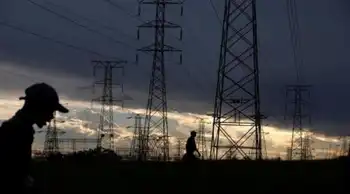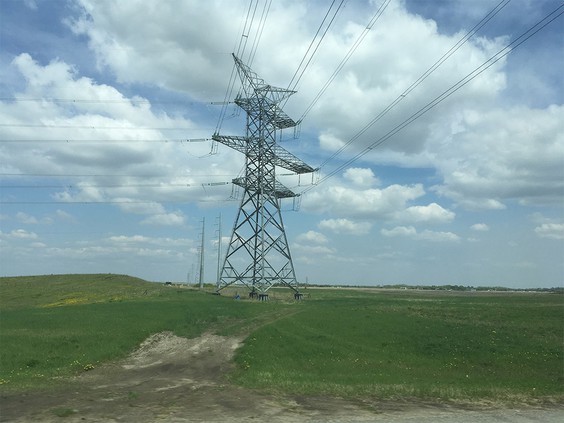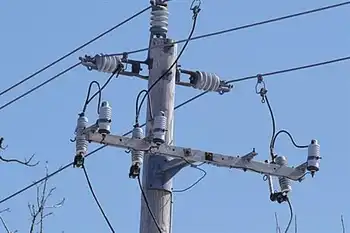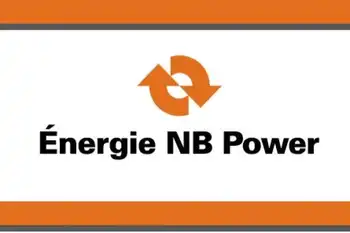Tax on utilities may make ballot this November
REDLANDS, CALIFORNIA - Voters may soon have to decide whether they want smooth streets, unbuckled sidewalks and shapely street trees badly enough to pay for them.
A 5 percent utility tax to fund repairs on public thoroughfares could go before Redlands voters as early as November.
Based on a citywide inventory conducted last summer, officials estimate it will cost about $150 million to address existing deterioration, install wheelchair ramps and build needed sidewalks throughout the city. In a recent presentation to the City Council recently, Public Works Department officials said they expect a tax would raise about $5 million a year. Added to the city's existing maintenance budget, that should be enough to finish the projects the inventory identified within 20 years. Public works Director Ron Mutter estimated that the tax on electricity, natural gas, phone and cable television would cost Redlands households $160 to $180 each year.
City utilities - water, sewer and trash - wouldn't be included. The cost for businesses hasn't been identified.
If the money were put into a fund to be spent only on infrastructure repairs, as proponents would prefer, the tax would need approval by two-thirds of the voters to pass.
The presentation on the tax was the first in a series of workshops on how to pay for projects the city has long discussed but hasn't had money to finish. Also on the list are new police and fire stations, a downtown parking structure and open-space preservation.
"If nothing gets done it'll just get worse. You'll see more potholes. You'll see more sidewalks uplifted. The liability to the city is going to increase," said David Garcia, chairman of the Public Works and Municipal Utilities Commission.
Garcia recently spent three hours photographing cracked sidewalks, crumbling curbs and potholes throughout the city. Some of his pictures were used in a recent workshop.
"I've seen it right on my street," he said. "The sidewalks are being repaired now, but the thing is, there were some sidewalks that were uplifted three inches. I personally saw a kid on a skateboard go head over heels. He didn't really get badly hurt, but he could've cracked his head open."
City Council members on Tuesday stopped short of unanimously endorsing the tax, but asked the utilities department to move forward with preparing it for the ballot.
Councilman Gilberto Gil said the city should get input from residents before putting a tax on the ballot.
Councilwoman Pat Gilbreath said the city is 10 years behind on maintenance and wondered whether the money raised would be enough to catch up. "That's trying to chase a tiger without a gun," Gilbreath said. "I'm concerned that our projections are not high enough." Redlands officials have failed four times in efforts to get voter approval for a utility tax. It was on the ballot three times in 1990 and 1991. City Clerk Lorrie Poyzer said the council passed a tax without voter approval in 1994, but rescinded it after failing to get voter approval for an extension in 1997.
Officials in Fontana and San Bernardino, two of the other local cities that tax utilities, said the taxes are one way for local governments to get a steady source of revenue that can't be tapped by the state. San Bernardino Councilman Neil Derry, a utility tax critic, said the taxes are unfair because they tax necessities such as natural gas and electricity based on usage, not ability to pay, and because it's difficult for households to break down how much they've paid. "It nickel-and-dimes people to death without letting them know how much they're being nailed," Derry said.
Kathie Thurston, executive director of the Redlands Chamber of Commerce, said the council needs to find a way to fix the city's infrastructure but should consider options other than taxation.
Thurston said the variety of new taxes and fees likely to be introduced can be frightening for businesses.
"We're going to keep an eye on this, a very close eye on it," Thurston said.
Related News

Africa must quadruple power investment to supply electricity for all, IEA says
JOHANNESBURG - African countries will need to quadruple their rate of investment in their power sectors for the next two decades to bring reliable electricity to all Africans, an International Energy Agency (IEA) study published on Friday said.
If African countries continue on their policy trajectories, 530 million Africans will still lack electricity in 2030, the IEA report said. It said bringing reliable electricity to all Africans would require annual investment of around $120 billion.
“We’re talking about 2.5% of GDP that should go into the power sector,” Laura Cozzi, the IEA’s Chief Energy Modeller, told journalists ahead of the report’s launch.…




